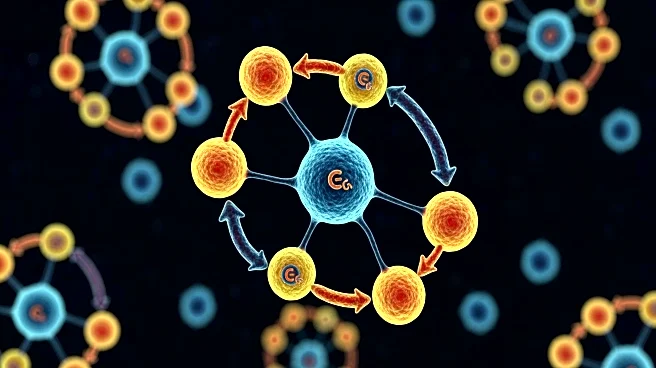What is the story about?
What's Happening?
Nikhil Malvankar, a professor at Yale, has discovered a potential advancement in quantum computing through the study of bacterial electron transfer. His research reveals that bacteria use nanowires to transfer electrons rapidly, a process that defies traditional biological theories and aligns with quantum mechanics. Collaborating with William Parson at the University of Washington, Malvankar's team found that electrons 'surf' waves rather than 'hop' like particles, suggesting quantum effects at room temperature. This discovery could lead to new approaches in quantum sensing and computation.
Why It's Important?
The findings have significant implications for quantum computing, a field that promises to revolutionize data processing and storage. By observing quantum effects in biological systems at room temperature, Malvankar's research challenges the notion that quantum mechanics is limited to low-temperature environments. This could pave the way for more cost-effective and efficient quantum computers, potentially transforming industries reliant on complex data analysis and processing.
What's Next?
Further research will explore how these quantum effects can be harnessed for practical applications in computing. Scientists may investigate how to replicate the bacterial electron transfer process in artificial systems, potentially leading to breakthroughs in quantum technology. The study opens new avenues for interdisciplinary collaboration between biology and physics.















